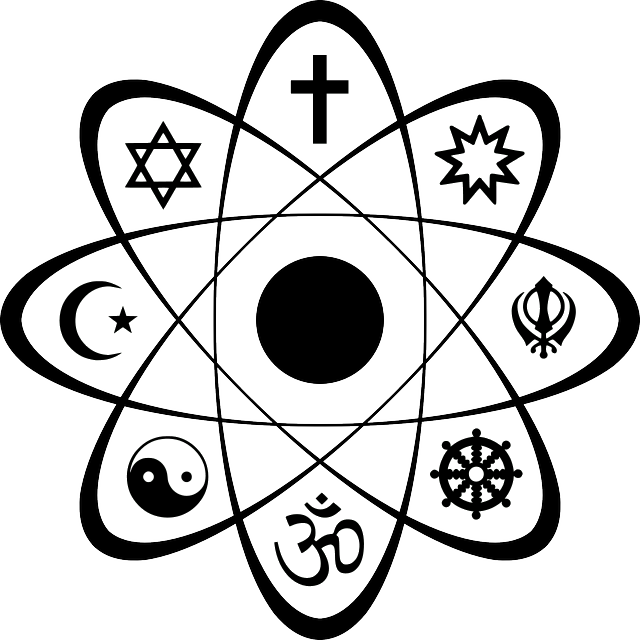Faith moves mountains

Mandatory Disclaimer: Crimson Shadows does not advocate for or endorse any particular religion or faith over others. We respect all religions that give hope, purpose, and morality to men and women alike. When "you" appears in the following, you is a reference to the character and not the player.
Faith in Crimson Shadows is often a thorny issue, perhaps even thornier than it is in the real world. By faith, some magicians work their magic, and by faith others can attempt to shake off the effects of mind control powers and strengthen their wills in order to accomplish superhuman deeds. Crimson Shadows does not endorse one particular faith over any other, but characters within the realm might.
What does it mean to be faithful?
Whether the character's religion is Neopagan, Christianity, Islam, Wicca, or something even more esoteric and constructed, to be considered a faithful person, one has to adhere to the commandments and rituals contained within their religion. Faithful Catholics go to confession and receive the Sacraments. Faithful Mormons go on missions. Faithful Muslims eat food that is halal and pray towards Mecca. Faithful Jews observe the prohibitions and guidelines contained within the Torah. To be faithful is to believe whole-heartedly in what your religion teaches and to strive to the utmost to live in a way consistent with those teachings. You do not need to be a zealot, out to convert the world with fire and brimstone, but you must believe.
You must observe the tenets of your faith actively rather than passively. You attend church, synagogue, the temple, gatherings, esbats, and you do so out of a genuine desire to be there and to participate. It's not enough to give lip service to a religion, you have to live it.
In heeding the dictates and doctrines of their religion, in participating in religious observances, in living life in a particular fashion, the faithful person finds a sense of peace, harmony, and assurance.
Faith as a Weapon - Active Faith
Faithful souls are capable of drawing on their faith in times of need in order to drive away supernatural creatures that intend harm or are actively using their powers. A person does not need the particular symbol of their faith in order to drive away demons, vampires, lycanthropes, and skinchangers, but having such a physical object which can serve as a focus for the faith increases the power of that faith. While being used as such, the object may glow, emitting a faint white light, which could well be the origins of myths about glowing crosses driving away vampires.
Faith as a Shield - Passive Faith
Faithful people are more likely to resist being compelled or manipulated by powers and abilities which affect the mind or emotions, are more likely to 'wake-up' from being rolled, and tend to be harder to control through supernatural means. When a faithful person brandishes the symbol of their faith against a supernatural being trying to compel or control him, the power fades unable to penetrate the shield of faith.

Faith as Power
Throughout the ages, humans have worshipped a variety of beings and objects, giving them veneration, sacrifices, and performing great and terrible deeds in the name of their God(s). What few people realize is the power inherent in faith. Cult leaders such as Manson, Applewhite, and Koresh often get a taste of this power, and it usually drives them insane, leading them into flights of fancy. They claim to be God or Jesus after the merest touch of worship. The truth is, that there is power in worship, and that power flows to the being or object being worshipped.
Human souls are not constructed to take in that kind of power, their very humanity making them incapable of absorbing anything but the slightest bit of that power. Yet, there are beings which can take in much more of that power. Vampires, Demons, and Angels, all have the capacity to draw power and energy from cults that worship them, and more than one such being has found their head swollen too far by letting the power they took in intoxicate them.
Faith as a Liability
Faith is a matter of perception joined with ritual, and can be challenged by events, tragedies, sorrows, or deliberate sabotage. If faith turns to doubt for even a moment, that moment may be all that a creature needs to take some fatal or corruptive action. Being faithful also means observing certain rituals, and going without those rituals can damage your faith.
On the other side of the faith liability pendulum is the status of zealot. Zealots have forgotten some tenets of their faith in order to focus on specific others. Zealots are those that seek to enforce the will of God, or Gods, by any means necessary and heedless of those who may be hurt. Zealots stand on pulpits and advocate the burning of witches, the stoning of gays, and other acts which seem to run contrary to gospel. Zealots are the ones that sacrifice Christians under moonlit skies. A Zealot has moved away from being faithful, and their faith is no longer a protection for them.
Tools of Faith
The body and blood of Christ is transubstantiated from bread and water; the athame is a symbolic weapon and a tool for focus and concentration. The various instruments and symbols employed by the various religions on earth acquire special significance and will generally burn vampires and demons.
Vampires and Faith

Despite what some religions may say about vampires, the fact is they do have a soul, and can belong to and practice any religion they desire to, although some religions are easier for vampires to follow than others. Vampires are not burned by religious symbols or icons, are not harmed by holy water, or driven away from the cross or the Star of David due to the power of the symbol themselves. Rather it is the faith being directed through or at the symbol which harms the vampire. Faith harms the vampire because the person drawing on his faith believes that the vampire is evil. Belief, in faith and other things, is everything.
Holy places such as consecrated churches or graveyards, holy relics like the bones of saints or martyrs, the sacraments exert benediction, which is the power to repel harm or malice and the chastisement of evil. Vampires are not evil by default, but their powers and abilities are supernatural, above nature, and benediction punishes those vampires who draw on unnatural powers. Repelling harm is a matter of perception that is both objective and subjective. Physically attacking someone is harmful, while speaking to them is not. Speaking to someone and trying to use powers or abilities is considered harm because the vampire is drawing on unnatural powers and energies to compel or persuade someone else. Vampires can walk onto holy ground as comfortable as anyone else provided they do not draw on their powers or intend to harm someone.
In the end, a vampire can be a member of a congregation, even officiate as a priest and exert priesthood or perform the functions of his office, provided he intends no harm and does not draw on supernatural power.
Demons and Faith
Demons and faith have a complex relationship, in part because there are enough demons that were once fallen angels that know that God truly does exist, and in part because despite their malevolence, many are essentially human souls. Holy water burns demons, inflicting pain equal to that of third degree or higher burns. Demons cannot practice any faith, except their own unique brand Luciferean worship, with any degree of serious intent. While some demons can enter holy ground, most cannot and are instead driven away by the presence of such faith.
As a general rule, demons cannot handle relics such as the bones of saints or the ashes of martyrs. Nor can they touch the sacraments or other tools of religious practice, and are burned by holy water. If a demon is in a Church, it means they are very powerful. The only exception to this rule is when something happens to desecrate the grounds, whether it's a power to that effect, or because of something like a murder on the grounds.

